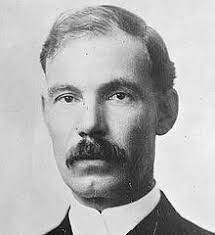Small, Albion Woodbury

Bio: (1854-1926) American sociologist. Albion Small is one of the founders and key figures of sociology in the United States. Small first studied theology in the United States, and from 1879 to 1881 he studied economy, politics, and history in Germany, at the universities of Leipzig and Berlin. Upon his return to the United States, Small taught at Colby College and completed a doctorate in history from Johns Hopkins University. In 1892, Small moved to the University of Chicago, where he founded the first sociology department at an American university. He was the head of the Department of Sociology at the University of Chicago from 1892 to 1924. Small is highly important for the institutionalization of sociology in the United States for several reasons: he was the first founder and head of a sociology department in the USA; he also published the first textbook of sociology – An Introduction to the Study of Society (1894); he was the founder and first editor of the first sociological journal in America - American Journal of Sociology; he was one of the founders of the American Sociological Society (which was founded in 1905), the first professional association of sociologists in the United States, of which he was president for two terms.
In addition to the above mentioned activities, Small's merits for the development of sociology are reflected in the following contributions: introducing the American scientific public to the achievements of social sciences in Germany; development of the sociological method; formulation of the place of sociology within the field of other social sciences; insisting that sociology should be, in addition to theoretical, applied science that will contribute to the improvement of society. According to Small, sociology is a general science that should synthesize all knowledge from other specialized social sciences. He believed that the scientific character of sociology could be improved by developing objective and quantitative methods.
Small's theoretical views were most influenced by the works of Ratzenhofer and Marx's theory of class conflicts. The concept of "interest" has a very important place in Small's theory. He defines interests as: “the simplest modes of motion which we can trace in the conduct of human beings”. Interests are instilled in every individual. Small divided human interests into six groups: 1) the health interest (consisting of the interests of nutrition, sex, and work), 2) the wealth interest, 3) the interest of socializing, 4) the interest of cognition, 5) the aesthetic interest, 6) the interest moral upliftment. Within one person, but also in society, there is a constant struggle between these different interests. All human activities can be explained through one or a combination of several interests.
Individuals sometimes have common and sometimes conflicting interests. In order to realize their interests, individuals unite in groups. Since its inception, the state has alleviated the conflicts of opposing groups by establishing the rules of the struggle for the realization of interests. The state also leads to the establishment of cooperation between citizens and an increase in the importance of higher types of interests. Small saw sociology as a science that deals with the study of the group basis of social life. Social groups act as the core of organized interests and thus form the basic units of the social process. The function of the social process is the realization of vital human interests.
Small believed that sociological knowledge should be the basis for creating practical measures for the improvement of society. In his book Between Eras: From Capitalism to Democracy (1913), he presented an analysis of the then-capitalist system in the United States and showed that capitalists have extremely large financial and industrial control, but he also pointed out the injustice and inefficiency of capitalist exploitation. He opposed the idea of unlimited private property and the inheritance of enormous wealth. Small thought that this situation was very bad and proposed a plan for the reorganization of the economy, according to which the state would control production, so it would work in the interest of all, and not just bring profit to the capitalists. Small was influenced by Marxist theories, but at the same time he was very religious, so he advocated something that could be called "Christian socialism".
Main works
An Introduction to the Study of Society (1894);
General Sociology (1905);
Adam Smith and Modern Sociology (1907);
The Cameralists (1909);
The Meaning of the Social Sciences (1910);
Between Eras: From Capitalism to Democracy (1913).

